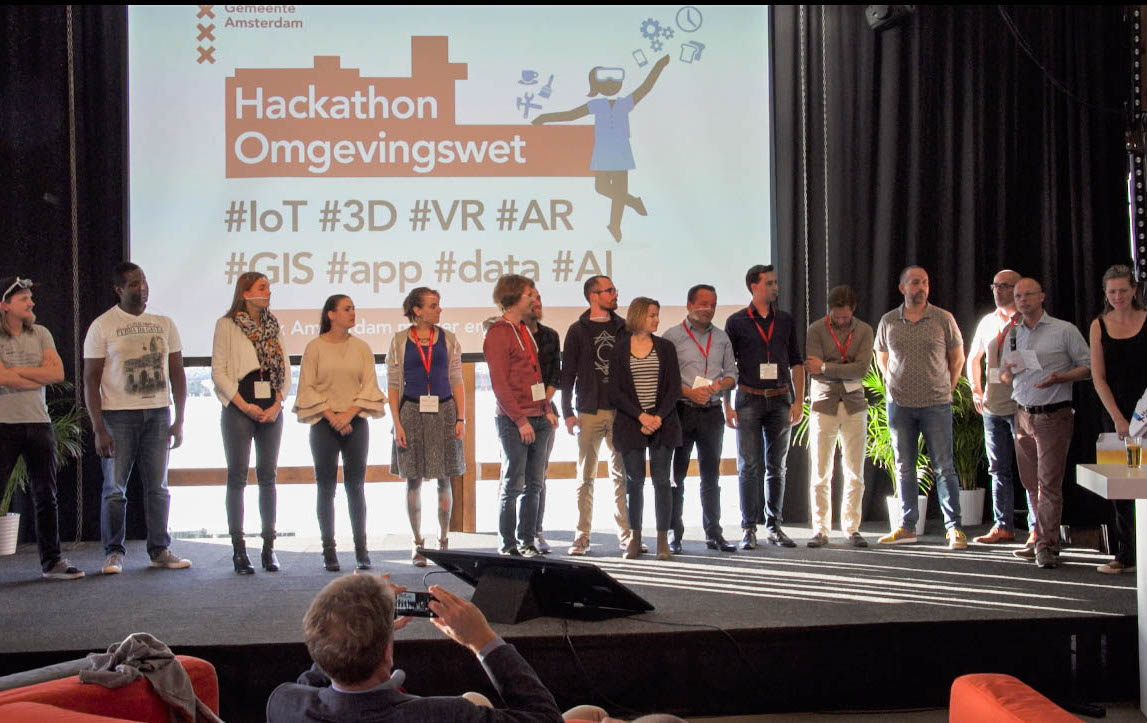The lucky streak continues.. or maybe there is something to it: we entered a hackathon for the third time this year and for the third time we won. This time it was a 2-day hackathon organized by Gemeente Amsterdam: Hackathon Omgevingswet.
THE CHALLENGE
The trigger for organizing this hackathon is the introduction of the new ‘omgevingswet’ whose goal is to simplify the process of issuing various permits (vergunningen). The representatives of the local goverements held a number of presentations to show us where their problems lie and what are their ideas for the future. The most important things we took away from these presentations were:
- It would great to have new ways of involving the public opinion more in city planning. Something with Virtual Reality and apps…
- …however, here and now we have a problem of permit applications taking too long and being frustrating for both the citizens and the civil servants,
- and all that despite the fact that there is already so much information available online to the public.
- People don’t need more information, but more relevant information
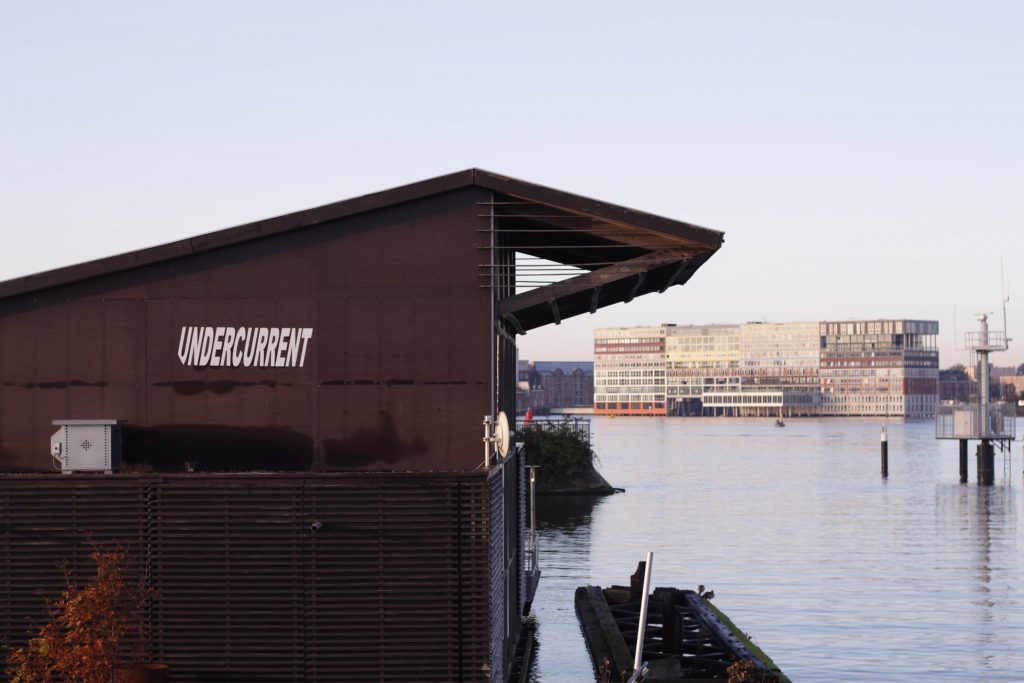
THE WINNING CONCEPT
We had many great ideas, too many actually. Including one great app that we baptized ‘Tinder voor omgeving’. However, in the end we went for the simplest and most practical of them all: Slimme aanvraag. Vandaag – use the data that the gemeente already has to give citizens relevant tips during the online permit application process.
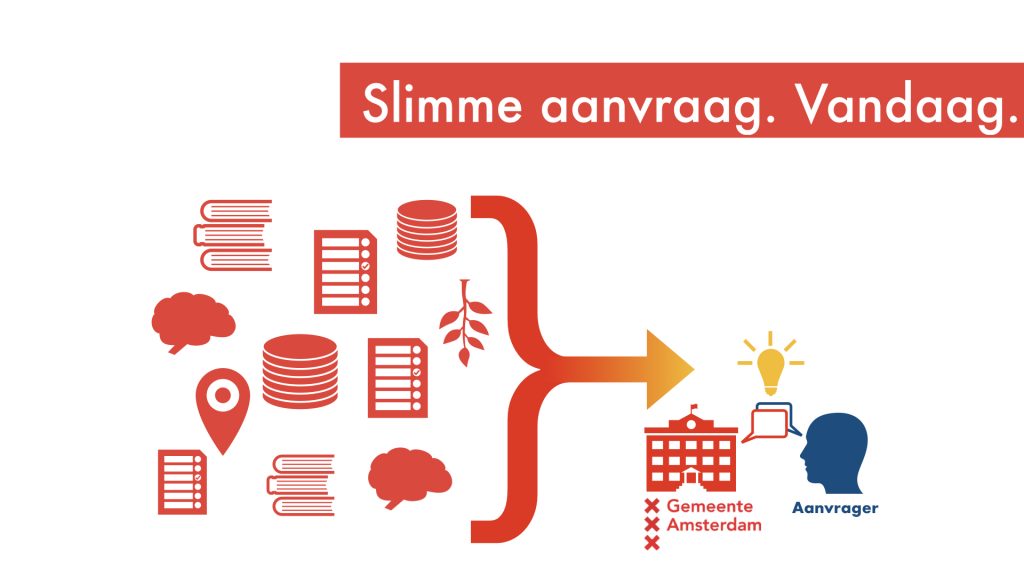
We took a good look at Omgevingsloket and noticed that there is already so much information there, nicely structured into lists of questions. However, all this information felt so … abstract. If I had to apply for a permit there, I still would have a lot of problems. What would really help me, would be a couple of good examples of permit applications. Somehow this is how human brains work: we don’t dig abstract explanations very well, but we love examples. Imagine that you’re filling out a complex online form, and for each field you get a couple of good examples that you can just copy and adapt:
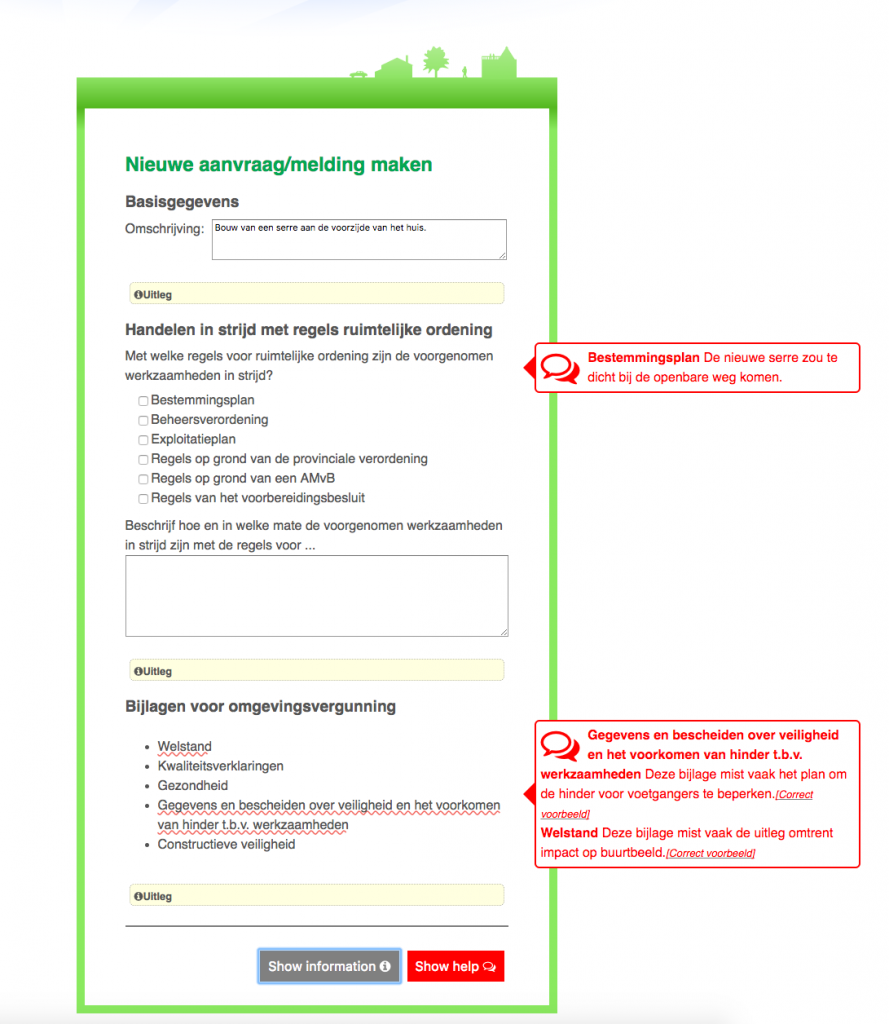
And this is actually not so hard to implement. All we need to do is to take all the existing permit applications filed through the Omgevingsloket website and use document clustering techniques to compare them and find good examples for the ongoing application.
SIMPLE AND PRACTICAL
Our idea won because of its simplicity and practicality. The Omgevingsloket website is already there, the data is being collected and the algorithms to find the right example applications are well known and tested in practice. The Gemeente can just start implementing it tomorrow and have a working solution in two months. And when it’s there many permit application processes will go more smoothly reducing the frustration for both citizens and civil servants.
WINNING IS NOT THE END
Winning the hackathon is not the end of the story. The Gemeente is actually considering implementing the best solutions from the hackathon. On Thursday, 5 October we’ll be presenting our idea at the DataLab Amsterdam meetup. In November, we’ll be presenting to Kopgroep Omgevingswet – the big bosses with a budget 🙂
THE TECHNICAL DETAILS
How does document clustering work? It’s actually quite simple – we can compare permit applications on a number of characteristics, such as location, type of application, and various keywords in the description. And for each pair of documents we can compute one number that denotes the distance or dissimilarity between the two documents. For example, in Figure 1, we compare two rooftop terrace applications and we see that they’re actually very similar, because the distance between them is only 0.51.
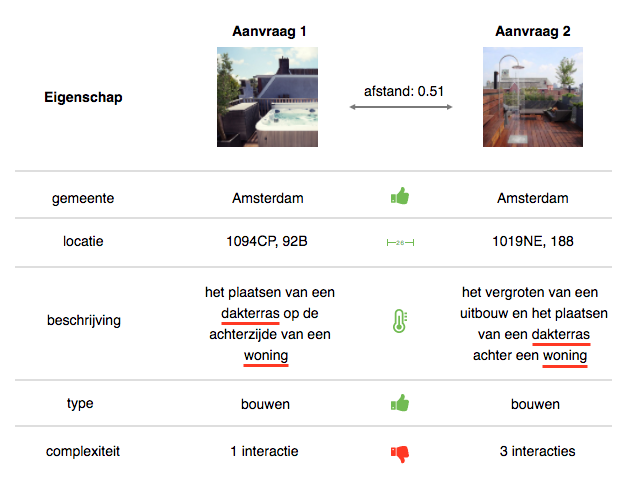
If we can compute distance between documents then for each new application we can look up documents with the smallest distance to this application and extract examples from these documents. So for a new rooftop terrace application we would find two other rooftop terrace applications from the neighbourhood:
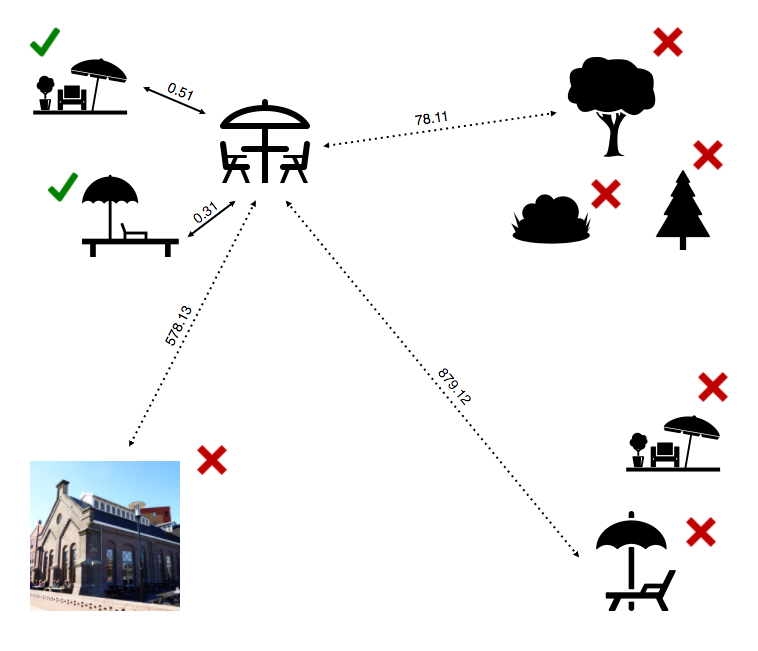
It’s that simple. We have a working prototype now. Hopefully we can integrate it with Omgevingsloket in the near future.

